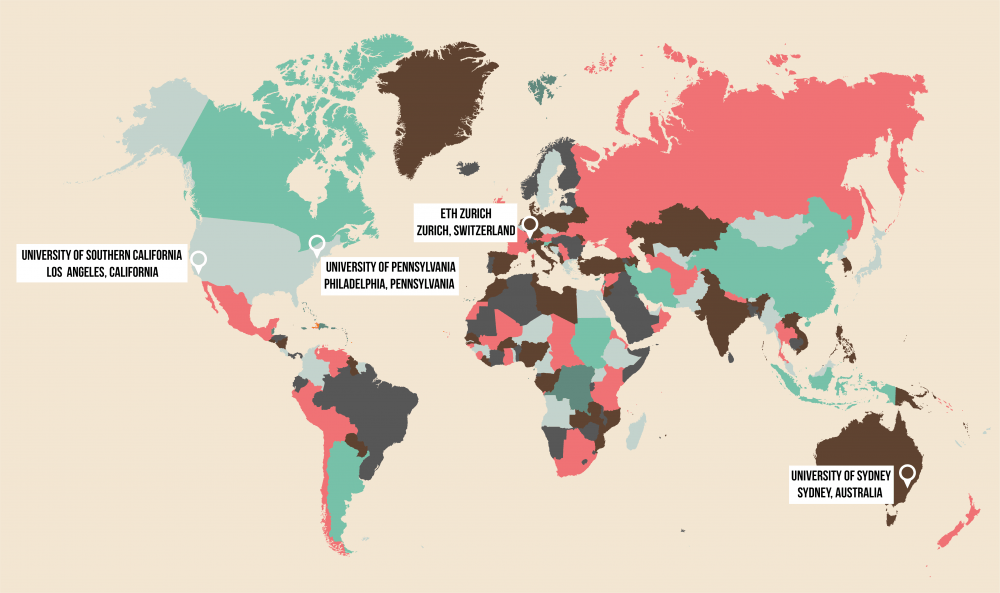Mental health has been a focus at Penn for several years, and more recently, Counseling and Psychological Services has undergone significant changes to expand its resources.
Some exchange students and transfer students say this focus is unique compared to other institutions they have attended.
Engineering senior Gustav Bredell is an exchange student who has spent three years studying engineering at ETH Zurich in Switzerland. He said the topic of mental health at ETH Zurich was not present and, if anything, was "taboo," which Bredell noted as interesting for an institution in a country with one of the highest suicide rates in the world.
Bredell said he did not to know the location of his university’s counseling center and that he does not know anyone who has used its services.
“I know a lot of people who have mental health issues who are studying, but none of them use the university’s resources. They all go private,” Bredell said. “I have the impression that they don’t view it as the university’s responsibility to look after their mental health.”
According to the ETH Zurich psychological counseling center website, the center has a team of eight employees, two of which are assistants. These eight employees are intended to serve the mental health needs of nearly 20,000 students.
At Penn, 45 clinical staff members serve nearly 25,000 students, and this number has been growing steadily over the years. In 2011, Penn had 35 clinical staff members.
College sophomore Jessica Schmitt, a transfer student from the University of Southern California, said she used the resources offered by the counseling center at USC during her transfer process, but had not met anyone else she knew who used the resources.
RELATED:
CAPS will extend its hours to weekday evenings and Saturdays
CAPS provides referral services over the summer. So why don't students know about them?
Schmitt added that because of USC’s location in Los Angeles and the school's heavy focus on Greek life, students feel pressured to appear stress-free and fun.
“There is a rigid mold that the USC sorority girl is supposed to fill. As an outsider to that culture, I could definitely see — just in the people around me and on social media — how these girls were being affected by it,” Schmitt said. “It felt like there was such a big problem with eating disorders at USC that went under the guise of ‘we’re eating healthy; 'California clean eating.'"
"At USC, no matter what happened, it was never linked to mental health,” Schmitt added.
Wharton junior Kartik Shastri, an exchange student from the University of Sydney, said there were hardly any discussions about mental health at his home university.
Shastri said at the University of Sydney, applying for term extensions as the result of family deaths or medical concerns was “a grueling process, and that makes people very upset."
"That has been the cause of a lot of mental health issues," he added.
He recalled a fellow student battling cancer who asked to postpone his exams to recover from chemotherapy, and the university did not respond for about a week.
Shastri said he noticed a stark contrast in polices at Penn, where students are often able to reach out to professors to get their exams pushed when they are faced with critical family and health reasons. He said this also applies to policies surrounding leaves of absences, which students and administrators at Penn have been working to refine.
Associate Director of CAPS Jane Kotler said that this year alone, there were 118 students returning from leaves of absence for mental health reasons.
“It’s hard to compare other counseling centers to each other,” CAPS Director Bill Alexander said. “It’s better to say how well do you fit your school. That’s the important thing.”



